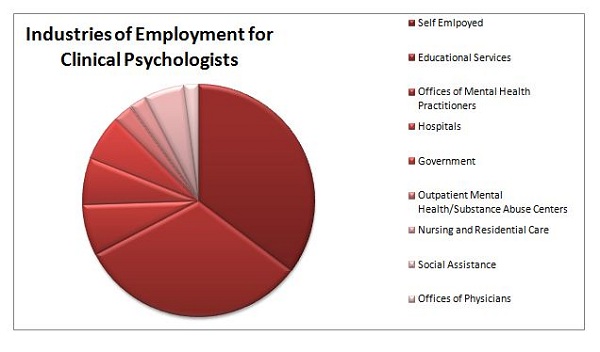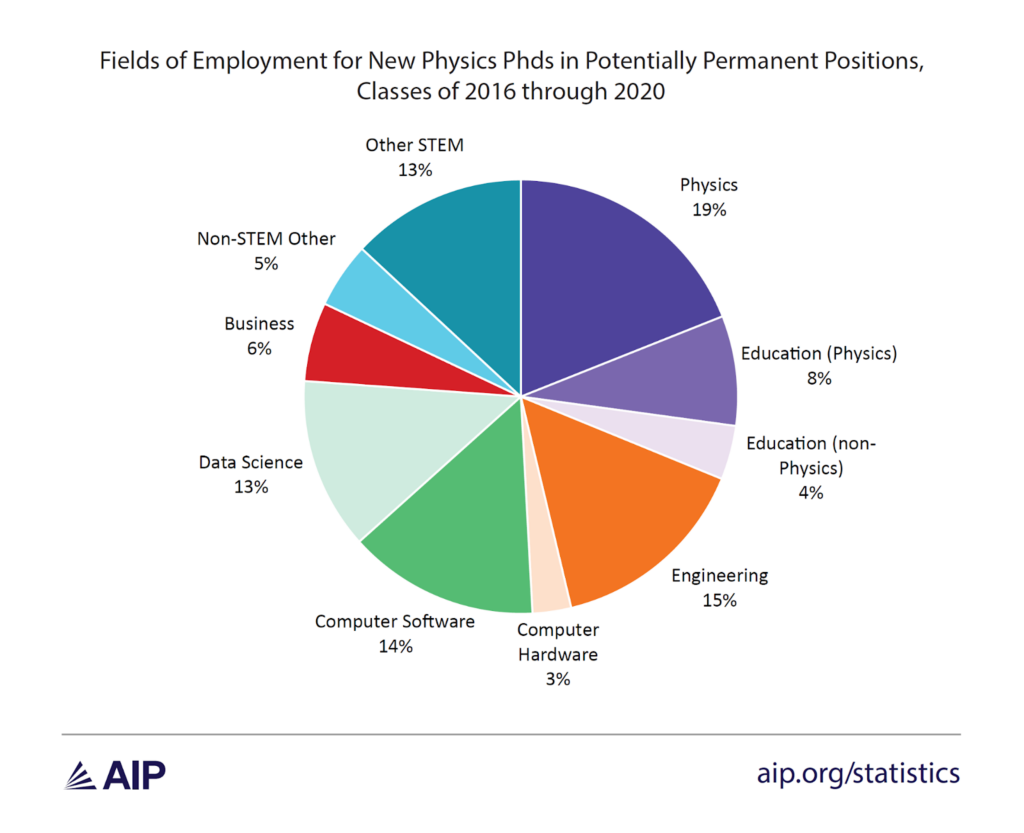Ah, the life of pursuing a doctoral degree. You’re probably sitting there, coffee in hand, contemplating whether to embark on this long, arduous journey. Well, you’re not alone.
- The Big Question: Is a Ph.D. worth it? You’re probably asking yourself this question every day.
- The Purpose of This Guide: This guide is here to help you navigate the complex world of doctoral degrees and the jobs that require them.
So, buckle up! You’re in for a ride. By the end of this guide, you’ll either be running toward or away from a Ph.D. Either way, you’ll be running with purpose.
If you’re aiming for the pinnacle of professions such as University Professorship, Research Science, Clinical Psychology, Medical Science, or Pharmacy, you will require a doctorate degree. Even in specialized fields like Physics, a doctoral degree often serves as the golden ticket. In essence, a doctorate degree is not just a qualification, it’s a gateway to the zenith of numerous professional fields.
Understanding a Doctoral Degree
So, you want to be called a “Doctor” but don’t fancy the sight of blood? A doctoral degree might be just the ticket for you.
- What is a Doctoral Degree?: It’s the highest academic degree you can earn in a field. It’s like the Mount Everest of academia.
- Types of Doctoral Degrees: From Ph.D. to Ed.D., M.D., and beyond, the world of doctoral degrees is as diverse as a box of assorted chocolates.
- The Journey to a Doctoral Degree: It’s not a walk in the park. It’s more like a trek through the Amazon rainforest, minus the anacondas.
Remember, a doctoral degree is not just a piece of paper. It’s a testament to your perseverance, dedication, and a slightly unhealthy obsession with your field of study.
What is the Value of a Doctoral Degree?
| One year after graduation | £26,700 | £33,200 |
| Median annual salary | Masters (taught) | PhD |
| Three years after graduation | £31,500 | £37,000 |
| Five years after graduation | £33,700 | £39,200 |
| 10 years after graduation | £35,900 | £43,900 |
| Salary comparison after Masters and PhD | ||
Why would anyone spend years studying for a doctoral degree? Well, let’s find out. It’s like asking why anyone would climb Mount Everest. The answer is simple: because it’s there, and it’s a challenge worth conquering.
Things you get from a Doctoral Degree
- The Prestige: With a doctoral degree, you’re not just a master, you’re a doctor. It’s like being a Jedi Master but for academics.
- Recognition: A doctoral degree is a globally recognized qualification that signifies expertise in a specific field. It’s like having a VIP pass in the world of academia.
- Authority: As a doctorate holder, you’ll have the authority to teach, conduct research, and contribute significantly to your field. It’s like being given the keys to the kingdom.
- Higher Earnings: On average, doctoral degree holders earn more than those with a master’s degree. It’s not a get-rich-quick scheme, but it’s something.
Financial Benefits
- Salary Prospects: According to data from the Higher Education Statistics Agency (HESA), it’s clear that earning a Ph.D. gives you a significant edge in the professional world. In fact, if you’re a Ph.D. holder, you’re about 8% more likely to land a professional role compared to someone with a taught Master’s degree. So, it’s like having an extra power boost in the race for professional occupations.
- Job Security: With a doctoral degree, you’re likely to enjoy better job security. It’s like having a safety net in the unpredictable world of employment. As a Ph.D. holder, you will have a 71% chance of securing full-time employment than a 62% chance of a Master’s degree holder.
- Contribution to Society: Your research could change the world, or at least a tiny part of it.
- Impact: The research conducted during a doctoral program often leads to new discoveries, advancements, and improvements in various fields. It’s like leaving your mark on the world.
- Recognition: Significant contributions to your field can lead to recognition, awards, and even fame. It’s like getting your star on the Hollywood Walk of Fame but in the academic world.
In the end, the value of a doctoral degree is not just about money or prestige. It’s about pushing the boundaries of knowledge, making a difference in the world, and wearing those cool graduation robes. Who wouldn’t want that?
Jobs That Require a Doctoral Degree
So, you’re considering a doctoral degree, and you’re wondering, “What jobs will this qualify me for?” Well, my friend, let’s dive into the sea of opportunities that a doctoral degree can unlock for you.
University Professor:
If the idea of molding young minds excites you, then becoming a university professor might be your calling. As a professor, you’ll be teaching, researching, and probably drinking a lot of coffee.
- Job Description: From delivering lectures to conducting research, a professor’s job is as diverse as it is rewarding.
- Why a Doctoral Degree?: A doctoral degree is usually a prerequisite for a professorship. It’s like a golden ticket to the world of academia.
- Potential Salary: While the salary can vary widely, on average, professors earn a decent income. Plus, you get summers off!
Here’s a list of annual salaries of University Professors across the world:
| COUNTRY NAME | AVERAGE ANNUAL INCOME OF PROFESSORS |
| Canada | $105,443 |
| United States | $97,627 |
| Germany | €99,349 |
| United Kingdom | £74,240 |
| France | €58,564 |
| Australia | $163,982 |
Research Scientist
If you’re the kind of person who loves to ask questions and find answers, then a career as a research scientist might be right up your alley.
- Job Description: As a research scientist, you’ll be conducting experiments, analyzing data, and probably wearing a white lab coat. Research scientists work in almost every area of science imaginable.
- Why a Doctoral Degree?: A doctoral degree equips you with the advanced research skills needed for this job. It’s like your passport to the world of scientific discovery.
As a research scientist, your duties are primarily centered around the laboratory, encompassing a wide range of responsibilities:
- Orchestrating and executing scientific experiments
- Documenting and scrutinizing data meticulously
- Venturing into the field to gather samples
- Showcasing findings to senior researchers and team members
- Crafting research papers, reports, summaries, and reviews
- Demonstrating procedures with precision
- Drafting research proposals and applications for funding or bids
- Overseeing junior staff members, including technicians.
- Potential Salary: The salary for research scientists can vary, but intellectual satisfaction is priceless.
The companies that pay the highest to their research scientists are;
| Company | Average Salary |
|---|---|
| $2,87,762 | |
| Meta | $2,84,322 |
| Amazon | $2,52,797 |
| NVIDIA | $2,36,343 |
Clinical Psychologist
If you’re fascinated by the human mind and have a desire to help others, then a career as a clinical psychologist could be a perfect fit.
- Job Description: As a clinical psychologist, you’ll be diagnosing and treating mental, emotional, and behavioral disorders. It’s like being a detective of the human mind.
- Why a Doctoral Degree?: A doctoral degree is typically required to practice as a licensed clinical psychologist. It’s like your license to heal minds.
- Potential Salary: While the salary can vary, the reward of helping others is immeasurable.
The annual average base salary for a clinical psychologist in the United States is $112,171.
And you will have multiple options in the industry to get employment after your Ph.D. in Clinical Psychology.

Source:https://mastersinpsychologyguide.com/articles/10-awesome-masters-in-clinical-psychology-jobs/
Medical Scientist
If you have a passion for improving human health and don’t mind spending hours in a lab, then a career as a medical scientist might be for you.
- Job Description: Medical scientists conduct research aimed at improving overall human health. They often use clinical trials and other investigative methods to reach their findings.
- Why a Doctoral Degree?: A doctoral degree provides the extensive scientific knowledge and research skills necessary for this role. It is necessary if you want to become a medical scientist because a doctorate degree will equip you will all the skills you’ll be needing.
Medical scientists find employment opportunities across a diverse range of organizations and institutions, such as
- Pharmaceutical and medical technology companies, where you can contribute to the development of new treatments and devices.
- Hospitals and laboratories, where you can conduct critical research and analysis.
- Government health departments, where you can contribute to public health initiatives and policy.
- Scientific research organizations, both private and public, where you can drive forward the boundaries of medical knowledge.
- Universities, colleges, and professional schools, where you can educate the next generation of medical professionals.
- Potential Salary: Medical scientists can earn a substantial income, with the top earners making well into the six-figure range.
In the US, the average annual salary of a Medical Scientist is $156,712.
The Table below shows the top-paying industries for you as a Medical Scientist!
| INDUSTRY | TOTAL PAY |
| Healthcare | $156,256 |
| Government and Public Administration | $138,347 |
| Managing and consulting | $132,528 |
| Pharmaceutical and Biotechnology | $128,462 |
Physicist
If you’re fascinated by the fundamental nature of the universe, a career as a physicist might be your calling.
- Job Description: Physicists study the ways in which various forms of matter and energy interact. Theoretical physicists may study the nature of time or the origin of the universe, while applied physicists may develop new sources of energy, advanced materials, or military technologies.
- Why a Doctoral Degree?: A Ph.D. in physics, astronomy, or a related field is typically required for jobs in research or academia.
After receiving a Ph.D., many degree candidates begin their careers in academia as postdoctoral researchers.
- Potential Salary: Physicists often earn six-figure salaries, with those working in certain industries or research roles earning even more.
According to the US Bureau of Labor Statistics, the employment of physicists and astronomers is projected to grow 8 percent from 2021 to 2031, faster than the average for all occupations.
- The average annual salary for physicists in the US is $145,099 (USD).
- Here are the employment fields for new physics Ph.D. recipients in potentially permanent positions at the American Institute of Physics through 2020.

Remember, while these jobs are high-paying, they also require a significant investment of time and effort to obtain the necessary doctoral degree. But if you’re passionate about these fields and ready for the challenge, the rewards can be well worth it. Plus, imagine the look on people’s faces at parties when you tell them you’re a physicist!
Choosing the Right Doctoral Degree for Your Career Goals
Choosing the right doctoral degree is akin to selecting the perfect pair of running shoes for a marathon. It’s a significant decision that can greatly impact your performance and overall experience.
- Understanding Your Career Goals: Before you embark on the doctoral journey, it’s crucial to have a clear destination in mind.
- The Importance of Clarity: Knowing your career goals is like having a compass; it guides your decisions and keeps you on the right path.
- Alignment: Your doctoral degree should align with your career aspirations. It’s like choosing the right key for a lock.
- Factors to Consider: Several factors come into play when choosing a doctoral degree, much like picking the perfect ingredients for a gourmet meal.
- Reputation: The reputation of the program and the university can significantly impact your career prospects. It’s like the brand of a product; it carries weight.
- Faculty Expertise: The expertise and interests of the faculty should align with your research interests. It’s like finding a dance partner who matches your rhythm.
- Case Studies: Looking at successful professionals in your field can provide valuable insights.
- Role Models: Successful professionals in your field can serve as role models. It’s like following the footsteps of those who have already climbed the mountain.
- Learning from Others: Understanding their educational path can help you make informed decisions. It’s like learning to navigate a maze by observing those who’ve already made it through.
Remember, choosing the right doctoral degree is a crucial step in your academic journey. It’s like selecting the right map for a treasure hunt. So, take your time, do your research, and trust your instincts.
If you’re still not sure which degree to opt for, look at the best doctoral degrees to get in 2023.
International Ph.D. Applicants: What You Need to Know
Applying for a Ph.D. as an international student is like playing a game of chess in the dark. But don’t worry, we’ve got some tips for you.
- Challenges: From visa issues to language barriers, the road to a Ph.D. is filled with obstacles. But hey, what’s life without a little adventure? But, you need to be very mindful of the costs, so choose the countries that offer the best stipends.
- Recognition of Foreign Qualifications: Not all degrees are created equal. Make sure your qualifications are recognized in the country where you plan to study.
- Tips for Success: From finding a supportive community to mastering the local language, there are ways to make your Ph.D. journey smoother.
Remember, as an international Ph.D. applicant, you’re not just pursuing a degree, you’re also embarking on a cultural adventure. So, pack your bags, brace yourself, and enjoy the ride.
Conclusion
So, there you have it. A comprehensive guide to doctoral degrees and the jobs that require them.
- Recap: We’ve covered everything from understanding a doctoral degree to discussing the jobs that require them. It’s been a long journey, but we hope it’s been helpful.
- Final Thoughts: A doctoral degree is a big commitment, but it can also open doors to exciting and rewarding careers. So, weigh your options, do your research, and make an informed decision.
Remember, the decision to pursue a doctoral degree is a personal one. Only you can decide if it’s the right path for you. But whatever you decide, remember to enjoy the journey and make the most of every opportunity.
